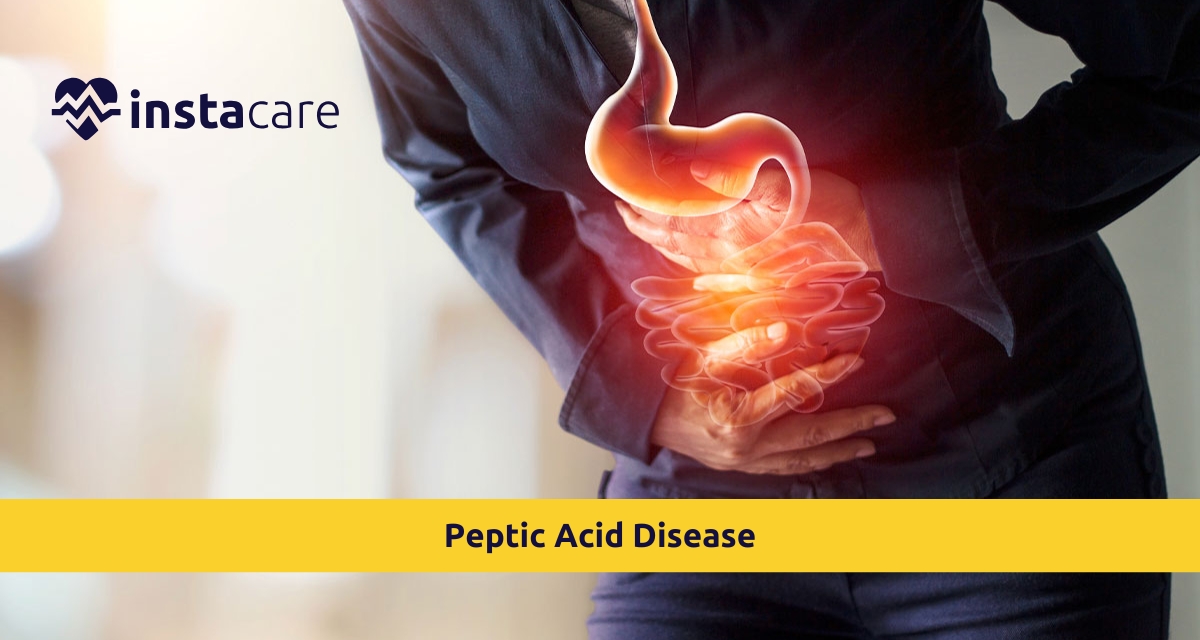Peptic acid disease or also known as peptic ulcer disease is a group of conditions where ulcers are confirmed on the stomach lining or in the duodenum. Many of these disorders are definitely uncomfortable because they cause abdominal pain, bloating, and indigestion and may occur regardless of age or activity level. Under effective control of peptic acid disease, understood and known are the causes, symptoms, and management strategies. A post of importance, the article gives its readers dos and don'ts toward helping manage their symptoms while in the process of recovery.
Symptoms
Common peptic acid disease symptoms include:
Extreme gnawing or burning abdominal pain: It is typically the most prominent symptom, usually occurring on an empty stomach or at night.
- Bloating and belching
- Nausea or vomiting
- Loss of appetite
- Weight loss
- Indigestion
Dos to Treat Peptic Acid Disease
1. Do have a Healthy Diet
You need an appropriate, balanced diet that should contain complete foods. Inclusion of some of the following:
- Fruit and Vegetables: All such food sources offer dense nutritional as well as fiber intake. Consider banana, apple, carrot and also leafy greens are quite tolerated in the gut.
- Lean Proteins: Incorporate poultry, fish, beans, and
legumes. Such proteins are fewer irritants of the inner wall of the stomach in
comparison with rich meats.
- Whole grains: Select whole wheat bread, brown rice, oats because they have high-fiber content which is effective to maintain good gut health.
2. Do Stay Hydrated
Drink enough water to dilute stomach acid for better
digesting. A generally recommended is eight 8-ounce glasses of water per day,
but always consider personal needs and daily activities level. Herbal teas,
being caffeine free, can provide some relaxing comfort as well.
3. Do Eat Smaller More Frequent Meals
Instead of big meals, which can exacerbate symptoms, have
small portions at regular intervals. This might be able to reduce the
production of stomach acid and therefore reduce pain. It can prevent your
stomach from becoming over-full and, therefore, regulate the quantity of acid
within it if consumed at regular 3-4 hour intervals.
4. Manage Stress
Stress makes peptic acid disease symptoms worse. Attempt to incorporate stress-reducing activities, such as:
- Mindfulness Meditation: This is a kind of mindfulness, which
makes you tackle stress the best way.
- Yoga or Tai Chi: It is soft exercise and makes your body
healthy; further it guides for finding out relaxation and wellness
- Deep Breathing Exercise: These exercises in breathing are very simple, which make you feel free from tension and provide easily relaxing surroundings.
5. Do Quit Smoking
Quit smoking: Smoking increases the production of stomach
acids and delays the healing of ulcers. If there is a problem, visit health care
providers or anti-smoking programs for help. Quitting will help with the
overall health of a person and reduce one of the risk factors for many
diseases.
6. Reduce Alcohol Use
Alcohol must be consumed responsibly they should not drink
to the extent of getting intoxicated. Liquids containing spirits aggravate the
lining of the stomach; the greater the volume of alcohol drinks consumed the
worse is the condition of the ulcers. On your own endeavor to stop or at the
very least low tobacco or alcohol consumption. Discuss with your doctor alcohol
reduction.
View More: What Are Effective Ways to Treat Utircaria
7. Follow Your Doctor's Treatment
When diagnosed with peptic acid disease, stick to your
doctor’s recommendation. This can be done using proton pump inhibitors (PPIs),
or antibiotics in the instance of a Helicobacter pylori infection. To keep
track of your health status you have to attend follow-up appointments. Always
update your provider when experiencing changes in symptoms or drug side
effects.
8. Do Keep a Food Diary
Keep a food diary in which you write down foods that trigger
the symptoms. Record what you are eating and how you feel afterwards. In due
course, this will help you pinpoint specific foods that ought to be avoided.
9. Do Take Probiotics
Yogurt and other fermented foods, kefir and sauerkraut, may
protect the health of gut bacteria. A healthy gut micro biome may improve digestion
and gastrointestinal flora, and may; therefore, play a role in reducing the
symptoms has peptic acid disease.
10. Do Try Herbal Remedies
Some of the herbal drugs are as follows; Slippery elm and
Licorice root mucilage’s are tonics to the stomach lining. Please consult your
physician when you are intending to use any herbal supplement since some may
harm you.
Do's Regarding Peptic Acid Disease
1. Avoid Trigger Foods
Some foods may irritate the stomach lining and may trigger the symptoms of peptic acid disease. These include:
- Spicy Foods
- Citrus Fruits
- Tomato-Based Products
- Chocolate
- Caffeinated Beverages
- Fatty or Fried Foods
2. Do Not Overeat
Avoid the intake of heavy meals as this increases the
pressure in the stomach and encourages the production of more acids. Take small
portions and heed your body's messages. It is better to eat until one feels
satiated rather than full so that symptoms can be better regulated.
3. Do not lie Down Immediately After eating
Do not lie down soon after taking your meals. Waiting for
two to three hours before lying down or sleeping gives the body sufficient time
to digest food in the stomach. If you must lie down, make sure to use the high
head position.
5. Do not Ignore Symptoms
Get prompt medical care when experiencing worrisome signs
like uncontrollable cramping in your abdomen, and even on vomiting or having
stools, which might seem dark in appearance. They could be evidence of
complications involving bleeding ulcers or perforation. Such must be given
emergency treatment for complete management.
6. Do not skip Meals
Although one should take small meals, missing them leads to
an increased production of stomach acid, which worsens symptoms. Take frequent
small portions to stabilize the stomach acid level.
7. Should Not Rely Solely on Over-the-Counter Medicine
Though some antacids and other over the counter medicines
might relieve or help for some time, it should not be used as treatment.
Instead, see the doctor for a proper diagnosis and thorough treatment plan.
8. Avoid Heavy Exercise Soon After Eating
Heavy exercises soon after meal time worsen the symptoms.
Wait for some time before heavy exercises to digest. Take light walks after
meals to digest without straining too much.
9. Do Not Ignore Lifestyle Changes
Most people are ignorant of how lifestyle changes will
improve management of peptic acid disease. Healthy habits and maintaining dos
and don'ts bring excellent improvement conditions and health in general.
Conclusion
This means a treatment covering all peptic acid diseases
that would suggest diet control, stress reduction, and strict compliance to the
doctors. A successful management of your symptoms with the help of dos and
don'ts, this article teaches, allows promotion of healing for the well-being of
a life. From lifestyle modification through medical interventions, treatment
through or combination, getting to peptic acid disease earlier leads to huge
improvement.
Please book an appointment with the best Gastroenterologist in Lahore, Karachi, Islamabad, and all major cities of Pakistan through InstaCare, or call our helpline at 03171777509 to find the verified doctor for your disease.











